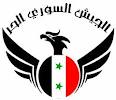Free Syrian Army (FSA) Building Military Base for Mojahedin-e Khalq Organization (MKO)
Names Two Battalions After Saddam Hussein

TEHRAN (FNA)- The so-called Free Syrian Army, the main armed rebel group fighting President Bashar al-Assad’s government, announced that it has set up two battalions called ‘Martyr Saddam Hussein’ in the cities of Idlib and Deir al-Zour in Syria.
In a blatant act of defiance and in a move aimed at provoking the feelings of Kurds in general and Syrian Kurds in particular, the FSA formed the two battalions.
Analysts believe that these acts, which are condemned and seen as worrisome by Kurds and all Syrians, might push the opponents to retract and backtrack on their moves against Bashar Assad’s government.
Naming the FSA battalions after Saddam Hussein was met with overwhelming outrage and condemnation by the Kurds.
Earlier reports also said that the FSA is building a military base for the anti-Iran terrorist Mojahedin-e Khalq Organization (MKO, also known as the MEK, NCR and PMOI) in the bordering areas of Syria and Lebanon.
The announcement was made yesterday by Basam al-Dad, a spokesman of the terrorist Free Syrian Army. Al-Dad claimed that the group wants to enjoy the experiences and combat skills of the MKO in different battle fronts.
The MKO is blacklisted by much of the international community.
Before an overture by the EU, the MKO was on the European Union’s list of terrorist organizations subject to an EU-wide assets freeze. Yet, the MKO puppet leader, Maryam Rajavi, who has residency in France, regularly visited Brussels and despite the ban enjoyed full freedom in Europe.
The MKO is behind a slew of assassinations and bombings inside Iran, a number of EU parliamentarians said in a recent letter in which they slammed a British court decision to remove the MKO from the British terror list. The EU officials also added that the group has no public support within Iran because of their role in helping Saddam Hussein in the Iraqi imposed war on Iran (1980-1988).
Many of the MKO members abandoned the terrorist organization while most of those still remaining in the camp are said to be willing to quit but are under pressure and torture not to do so.
The group, founded in the 1960s, blended elements of Islamism and Stalinism and participated in the overthrow of the US-backed Shah of Iran in 1979. Ahead of the revolution, the MKO conducted attacks and assassinations against both Iranian and Western targets.
The group started assassination of the citizens and officials after the revolution in a bid to take control of the newly established Islamic Republic. It killed several of Iran’s new leaders in the early years after the revolution, including the then President, Mohammad Ali Rajayee, Prime Minister, Mohammad Javad Bahonar and the Judiciary Chief, Mohammad Hossein Beheshti who were killed in bomb attacks by MKO members in 1981.
The group fled to Iraq in 1986, where it was protected by Saddam Hussein and where it helped the Iraqi dictator suppress Shiite and Kurd uprisings in the country.
The terrorist group joined Saddam’s army during the Iraqi imposed war on Iran (1980-1988) and helped Saddam and killed thousands of Iranian civilians and soldiers during the US-backed Iraqi imposed war on Iran.

